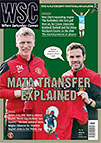 A new owner usually brings promises of lavish spending but Charlton fans need only look at examples in Belgium to see how their club will be run, says John Chapman
A new owner usually brings promises of lavish spending but Charlton fans need only look at examples in Belgium to see how their club will be run, says John Chapman
At the end of last season, thousands of football fans marched through the streets of Liège protesting about the president of the city’s major football club. The anger of fans, who forced their way into the stadium and interrupted a board meeting, was aimed at Roland Duchâtelet, the new owner of Charlton Athletic.
Although the Standard fans had been unhappy since Duchâtelet’s arrival in 2011, two events pushed them over the top. Despite beating Gent 7-0 to qualify for Europe, Duchâtelet promptly sacked the club’s popular coach Mircea Rednic and replaced him by the relatively unknown Guy Luzon. Around the same time, media reports stated that Duchâtelet had taken €20 million (£16.5m) out of the club.
Duchâtelet’s reputation with Standard’s fans was in shreds. He swiftly reacted by announcing he would sell the club – to the right buyer under the right conditions. Seven months on, Duchâtelet is still in charge: the club has a healthy lead at the top of the Belgian league, he has held peace talks with the supporters’ associations and Duchâtelet’s football empire straddles Europe.
As well as the jewel in the crown that is Standard Liège, Duchâtelet also owns clubs in Flanders, Spain, Germany, Hungary and England. As for the €20m, he explained that this was moved to one of his holding companies as a tax-effective measure.
One of the richest men in Belgium, with a personal fortune estimated at €750m, Duchâtelet owns companies specialising in the manufacture of semiconductors and integrated circuits. Bilingual, with a Walloon father and Flemish mother, Duchâtelet has been involved in politics – he formed liberal party Vivant in 1997 – and entered football in 2002 when he bought Belgian club Sint-Truiden.
According to Alex Onclin, a long-standing season-ticket holder and moderator of a fans’ forum for Flemish Standard fans, Duchâtelet has an interest in the game but lacks genuine passion. He wants to show people, especially his critics, that it’s possible to be a financial success in the world of football. One by-product for Standard is that he’s investing in a youth policy rather than buying big money players. Onclin argues that Duchâtelet has the urge to play on a bigger stage. While at Sint-Truiden, he felt ignored at the Belgian Pro League meetings, which are dominated by the country’s biggest club, Anderlecht. Even after buying Standard Liège for €30m, he’s treated as an outsider. Duchâtelet tried to promote the idea of the BeNeLeague – a league bringing together clubs from Belgium and the Netherlands – but his was a lone voice.
Duchâtelet underestimated the fans’ mood in Liège and he should be careful at Charlton. Danny Carlier, from the Charlton Life fans’ forum, says the supporters are concerned about the recent transfer dealings and that there’s a feeling that manager Chris Powell is being undermined. They have a right to be worried. After making some bad calls, Duchâtelet has handed over decision-making on transfers to an Israeli agent, Dudu Dahan. So far this has not caused major problems with the Standard fans – as most inter-company transfers are outgoing – but he was undoubtedly the man behind the choice of players who recently moved to Charlton and other clubs owned by Duchâtelet.
Carlier notes that talk of a move for Charlton to a new stadium on the Greenwich peninsula has long been mooted but that fans feel the likelihood of this happening has diminished with Duchâtelet’s arrival. Such an upheaval would upset those who see The Valley stadium as the club’s heart and soul, especially as fans famously campaigned to return after the club went into a seven-year exile in 1985. However, given Duchâtelet’s reputation of aiming for financial profit or break-even over footballing success, a move may yet be on the cards.
Onclin says of Duchâtelet that “he may not bring success in terms of trophies but he won’t leave a club for dead when he’s gone”. Sint-Truiden were in debt when he took charge and now they have a state-of-the-art stadium, with a hotel and shopping outlets. The club is, however, in the second division. Duchâtelet is unlikely to let one of his operating units fail but never puts football success at the forefront of his thinking.
From WSC 325 March 2014